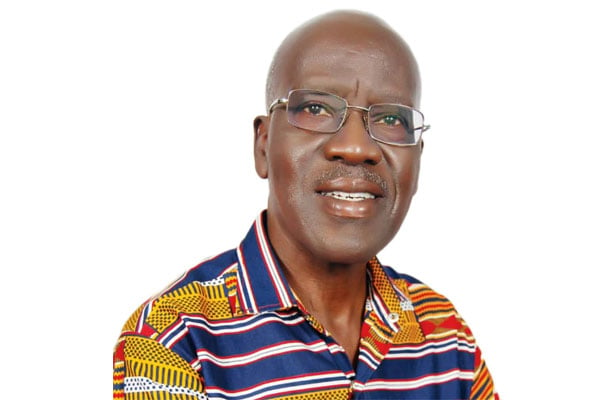Prime
Remembering the Future – by 12 Ugandans

Prof Timothy Wangusa
What you need to know:
- To me, it is the most outstanding book that Uganda has yet mothered.
Absolutely fresh from Ibua Publishing, Remembering the Future is an instant brain teaser. It is a provocative and profound new book (2023) out of Uganda. Wh-a-t? Remembering that which has not yet happened?
Like forgetting that which never happened! Ah, what is this abrupt and daring invitation to us to remember forwards, not backwards? Or, shall we say that what is yet to happen in future has already been predetermined by what has happened in the past? And that, therefore, remembering the future is remembering it as if it has already happened.
But just a minute: This is not the first time I am encountering this apparently self-contradictory, this paradoxical proposition on the various possible dimensions and levels and phases of time. I am at once reminded of the Yoruba god who can ‘throw a stone today and kill a bird flying yesterday’! And of the Judeo-Christian God who can ‘today cause something tomorrow to change something yesterday’! Yes, an instant brain teaser is what this book title is – and more than that: It is an enticing invitation to you and me to immediately open its pages, as soon as it catches our wandering eyes. And that was the case with me – and my, was I hooked as soon I did open it. And so will you!
Between them, the 12 scribes of this book have penned what, to me, is the most outstanding book that Uganda has yet mothered, or father-mothered – in powerful and persuasive prose, that is to say, in ‘well chosen words in their best order’ - on the subject of the key importance of a community’s indigenous culture(s) in moulding and enhancing the essential human values of that community in the present and future times.
The 12 scribes include: icons and passwords in the field of journalism, namely, Joachim Buwembo, Stephen Ssenkaaba, AK Kaiza, Edna Namara, Flavia Nassaka, and Caroline Ariba; creative writers, artistic directors, and/or publishers - Wobusobozi Amooti Kangere, Regina Asinde, Achelam Kinyera, Aliker P’Ocitti, and Joseph Elunya Sr.; and an architect writer – Linda Akoth Orando. The 284-page anthology is expertly edited by two well-established international pen-smiths: Christopher Conte of Washington DC and Uganda’s Hilda Twongyeirwe of Femrite.
The book is a treasure house of the excellent cultural values inherent in the oral traditions and practices of a cross-section of Uganda’s ethnic communities. These are social and personal values that underpinned these ethnic communities in pre-colonial Uganda, and should be carried forward and integrated into the communities of Uganda’s technological and urbanised future.
Come meet: the Kabaka of Buganda (at age 65), climbing a ladder to the top of a 65-foot pole to go place at the top of it the final three of the 52 crafted concentric rings representing that number of the clans of Buganda – each clan with its animal or plant totem so central to environmental conservation! Come meet: the warrior woman Kibubura, a daughter of Bunyoro who had a narrow shave with Omukama Kabalega, and fled all the way to the land that was to become Ibanda in Ankole, where she feministically and militantly rose to the position of a powerful county chief.
Come meet: the ‘Asapan’ manhood concept of ‘killing a bull’ among the ‘Ateker Diaspora’ of the same-language ethnic communities that inhabit the Karamoja lands of Uganda, the Turkana lands of Kenya, and the Toposa lands of southern Sudan. Come meet: the Goria clan of the Japadhola in their practice of ‘humanhood’ or ‘ubuntu’/’buntu bulamu’, with its social premium on communal good as opposed to the contemporary focus on individualistic greed within the national complex.
And come also meet: the reason for the sadness in a Kiga bridal song, folktale ghosts and demons featuring in modern movies, Radio Katwe penetrating the Internet, humanhood as the original principle underlying all storytelling, and – who it is that made money, and what money has made him….
Prof Timothy Wangusa is a poet and novelist.


